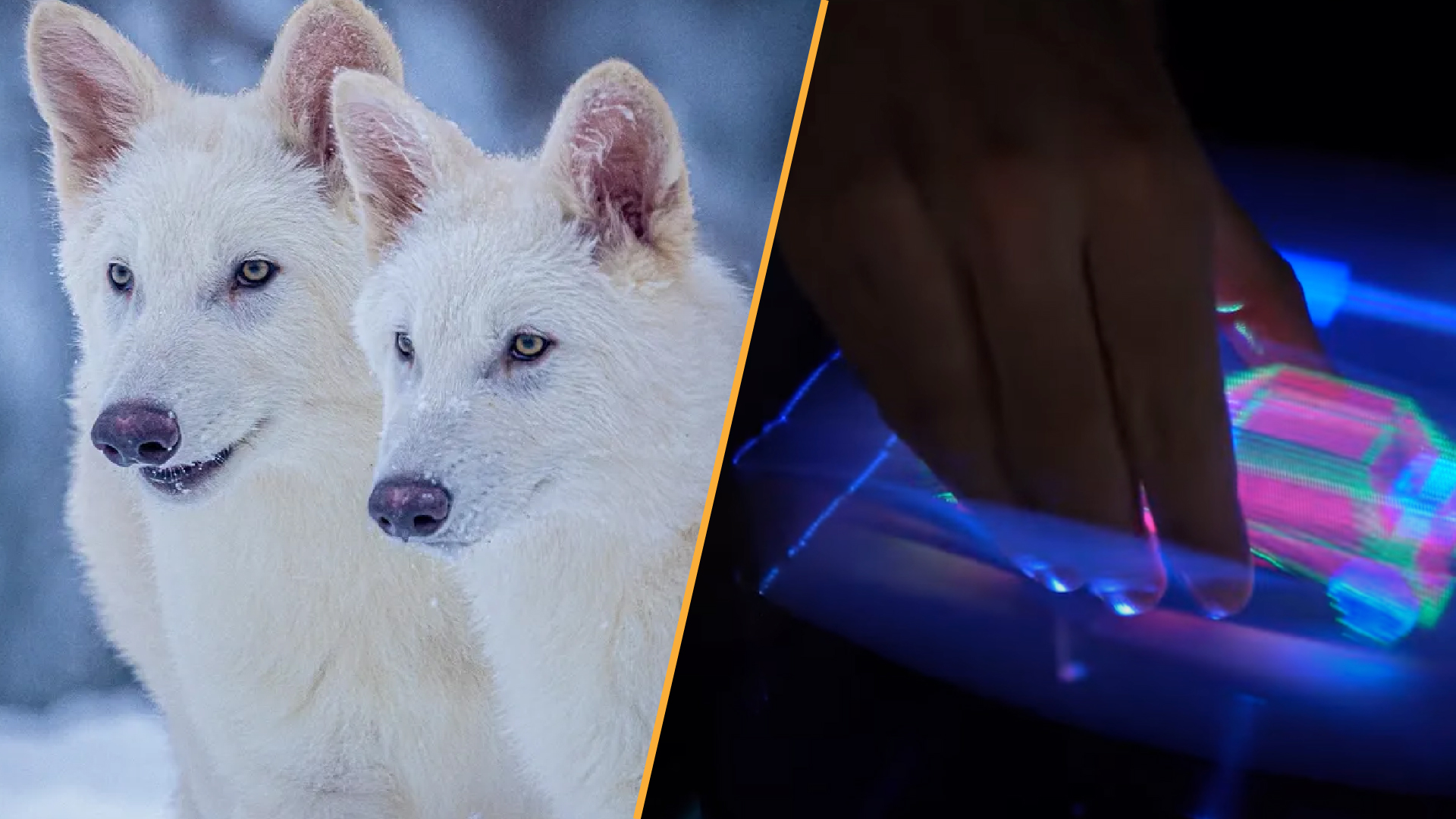In Photos: The Majestic Painted Wolves of Zimbabwe
A misunderstood species
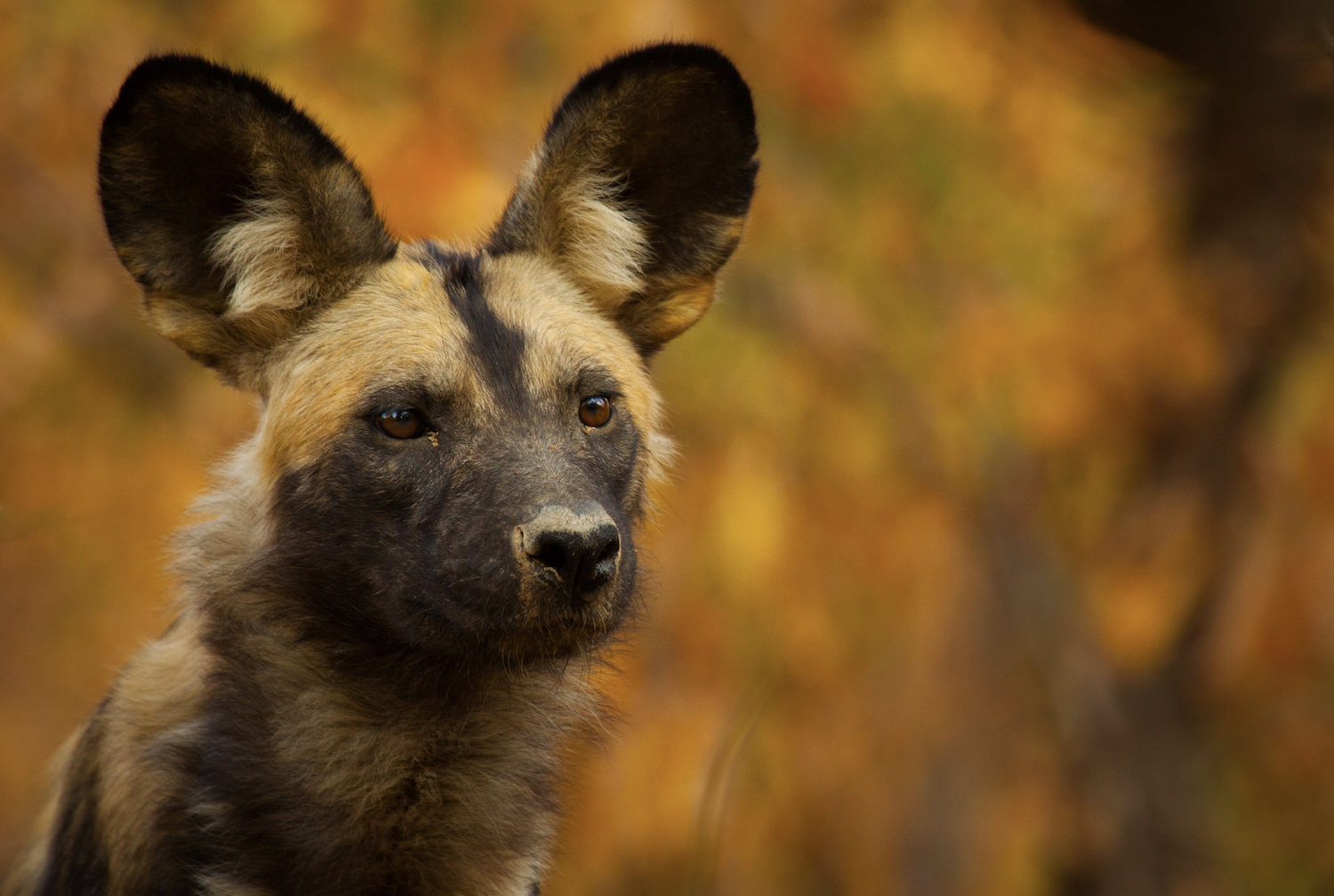
The fourth episode of BBC America's new series, "Dynasties," follows two packs of painted wolves (also called African wild dogs) living in Mara Pools National Park in Zimbabwe. Catch the episode this Saturday, Feb. 9 at 9 p.m. EST/8 p.m. CST on BBC America. Viewers can still watch the first episode, "Lion," online for free.
A legendary matriarch
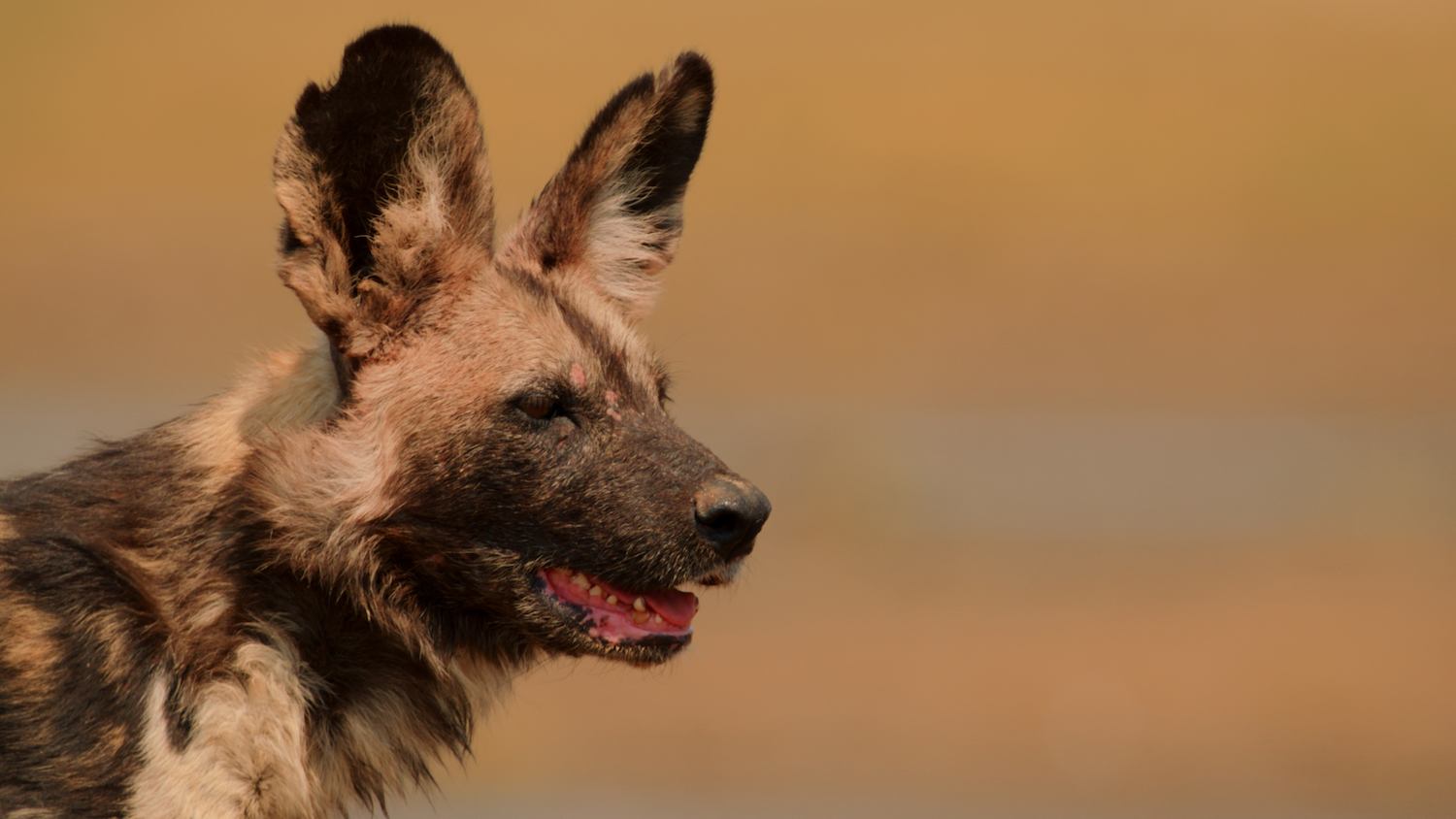
This is Tait at 10.5 years old. Tait was a very successful alpha female who reared eight litters of pups. There are only 6,600 painted wolves left in the world, and about 280 are from Tait's bloodline.
Alpha-in-training
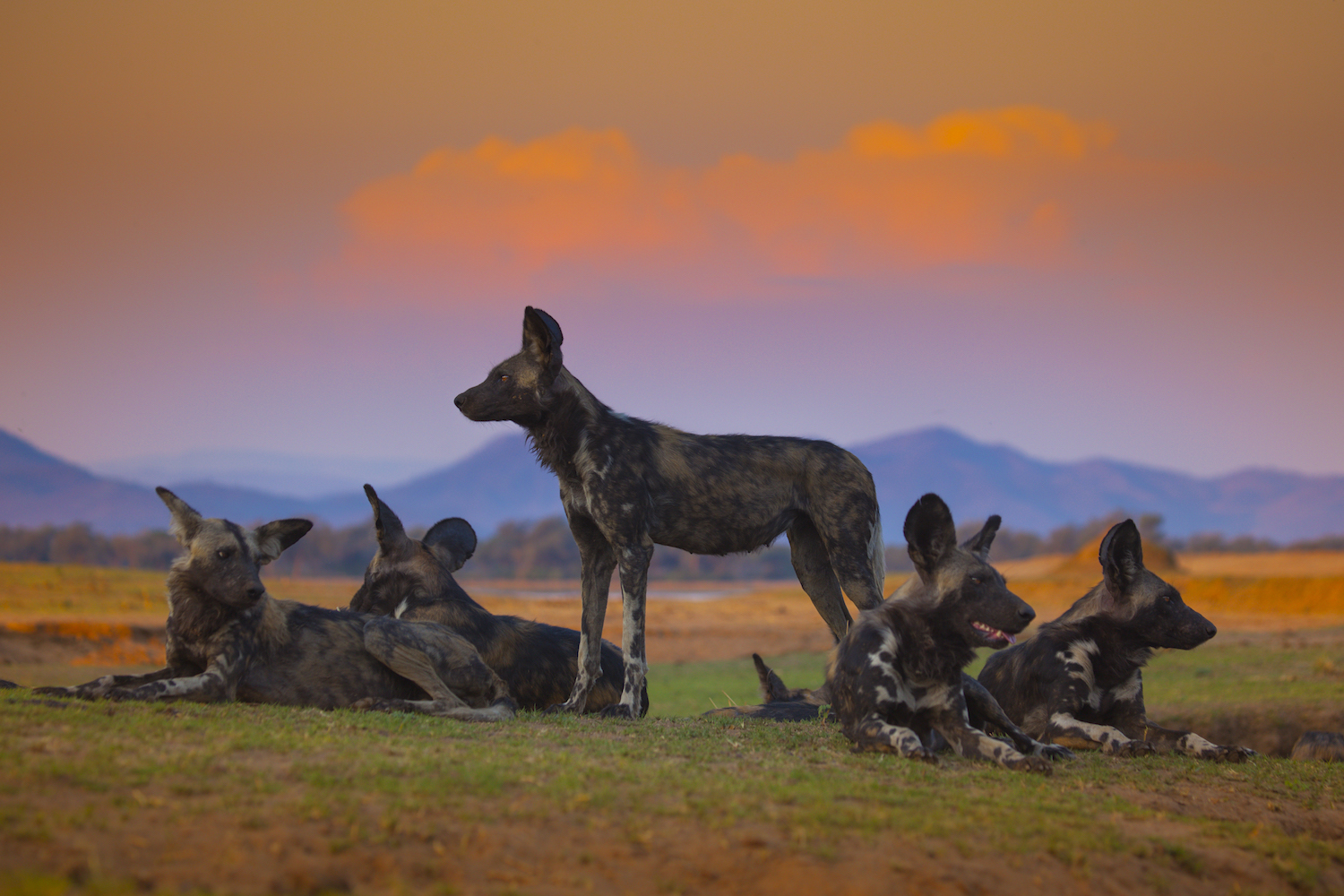
Tammy (standing) is one of Tait's grown daughters. The BBC America crew followed Tammy from the time she was 6 months old until David Attenborough met her at 4 years old. Eventually, Tammy stepped into her mother's position as leader of the pack.
On the run
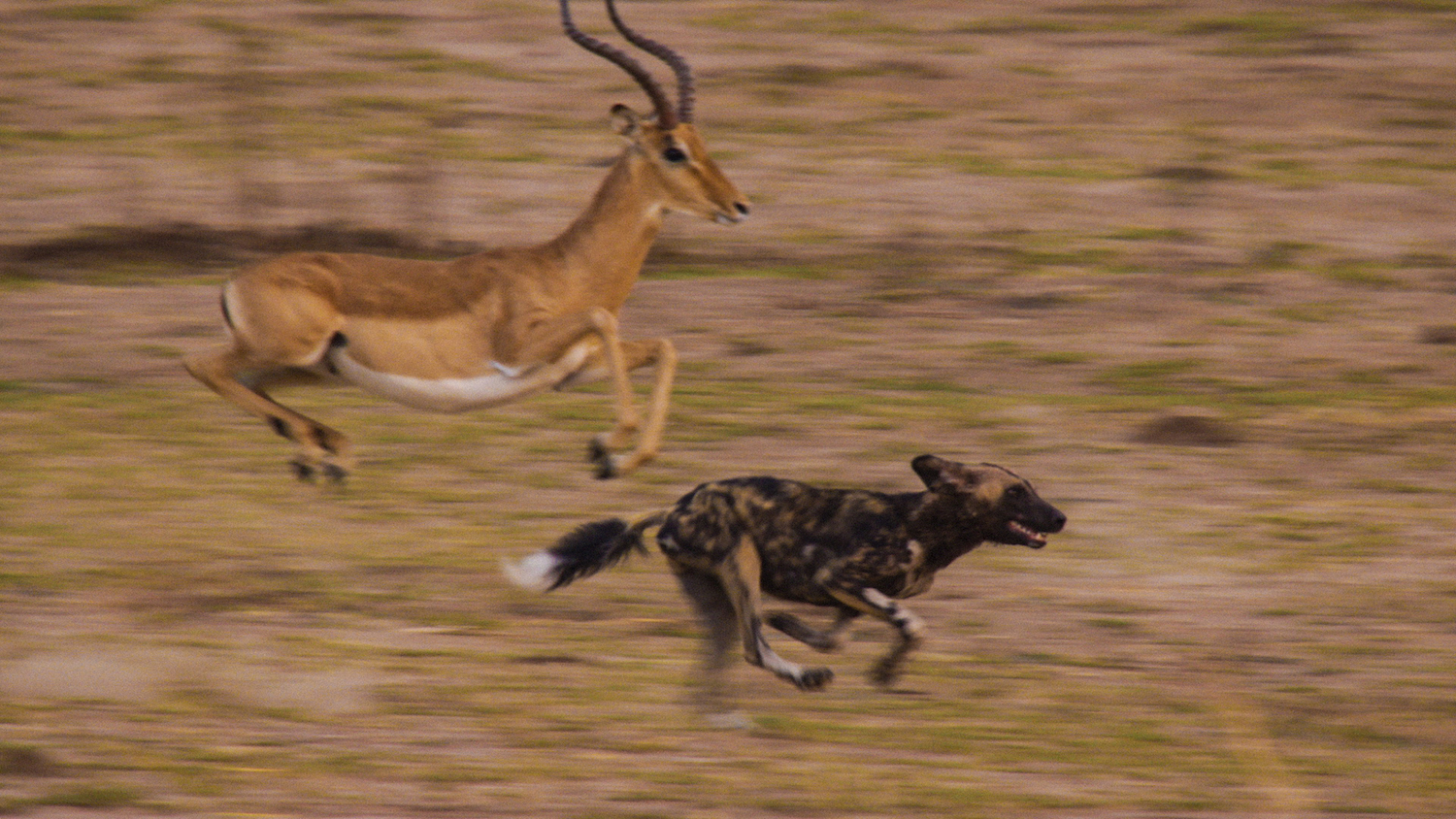
Painted wolves are one of Africa's most efficient hunters, but they're vulnerable to serious leg injury when running across large, deep footprints left behind from herds of elephants. [Video: Elephants Aren't Fans of Painted Wolves]
Baboon hunters
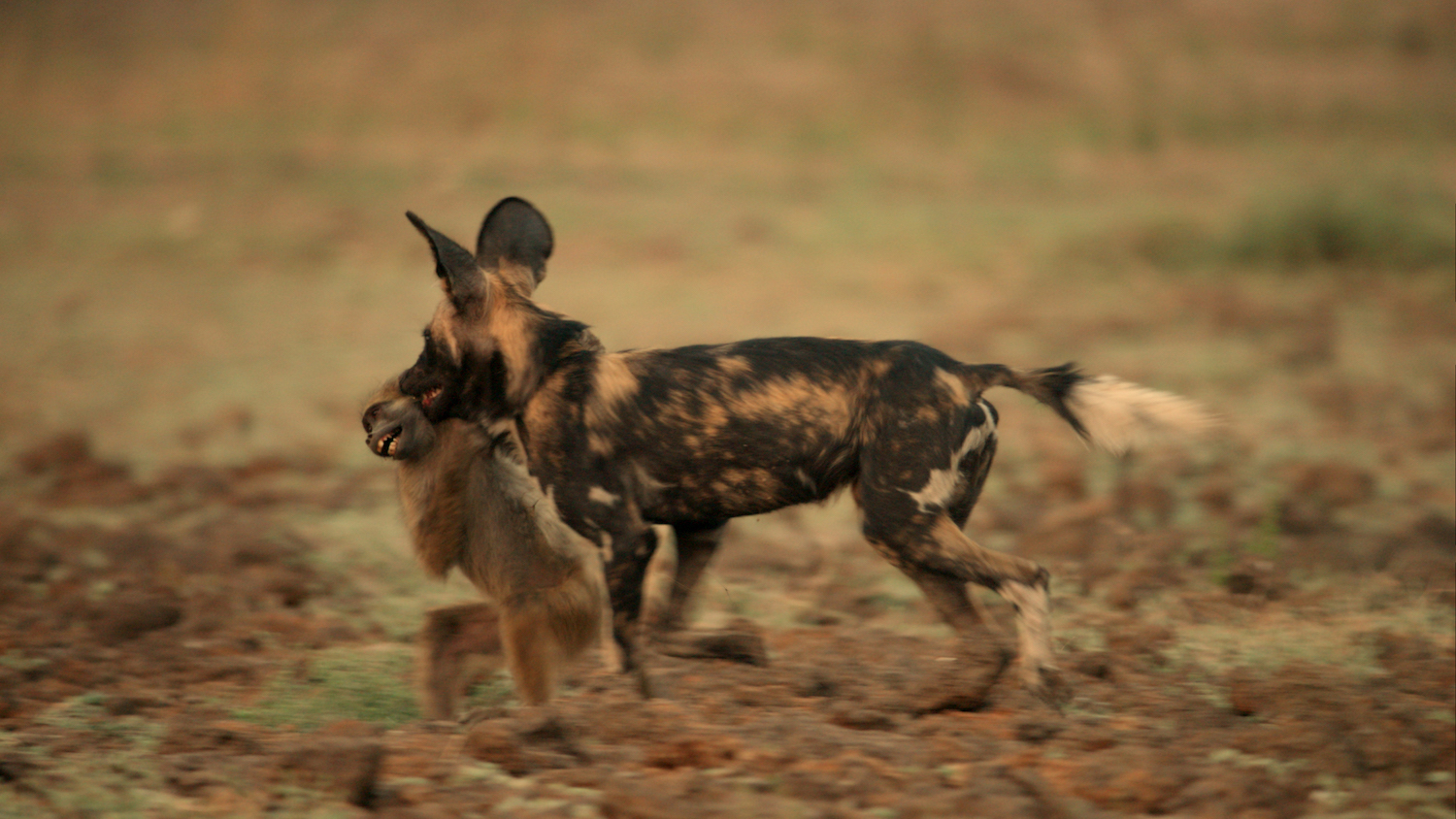
Most predators in the animal kingdom know better than to go after prey that could seriously hurt them, but Africa's painted wolves don't seem too concerned about that. This week's episode of "Dynasties" presents the first time painted wolves have been documented hunting and eating baboons — a primate species that's well known for retaliating violently against its predators.
Family drama
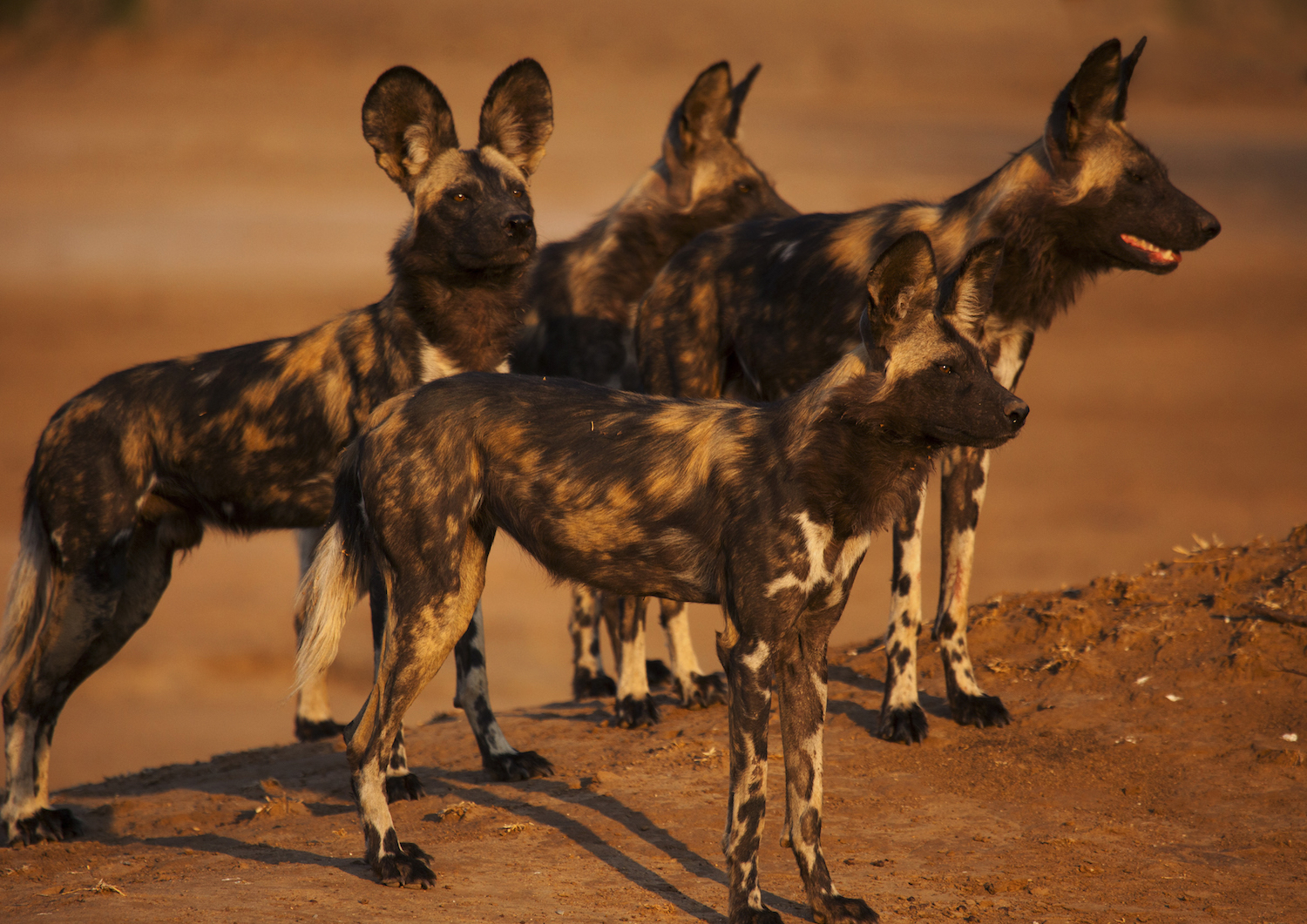
Blacktip is another one of Tait's grown daughters, and the alpha female of a rival pack. Blacktip successfully reared a litter of 10 puppies, which made her pack bigger than Tait's; it also allowed her to drive Tait's pack out of their territory.
Practice punch
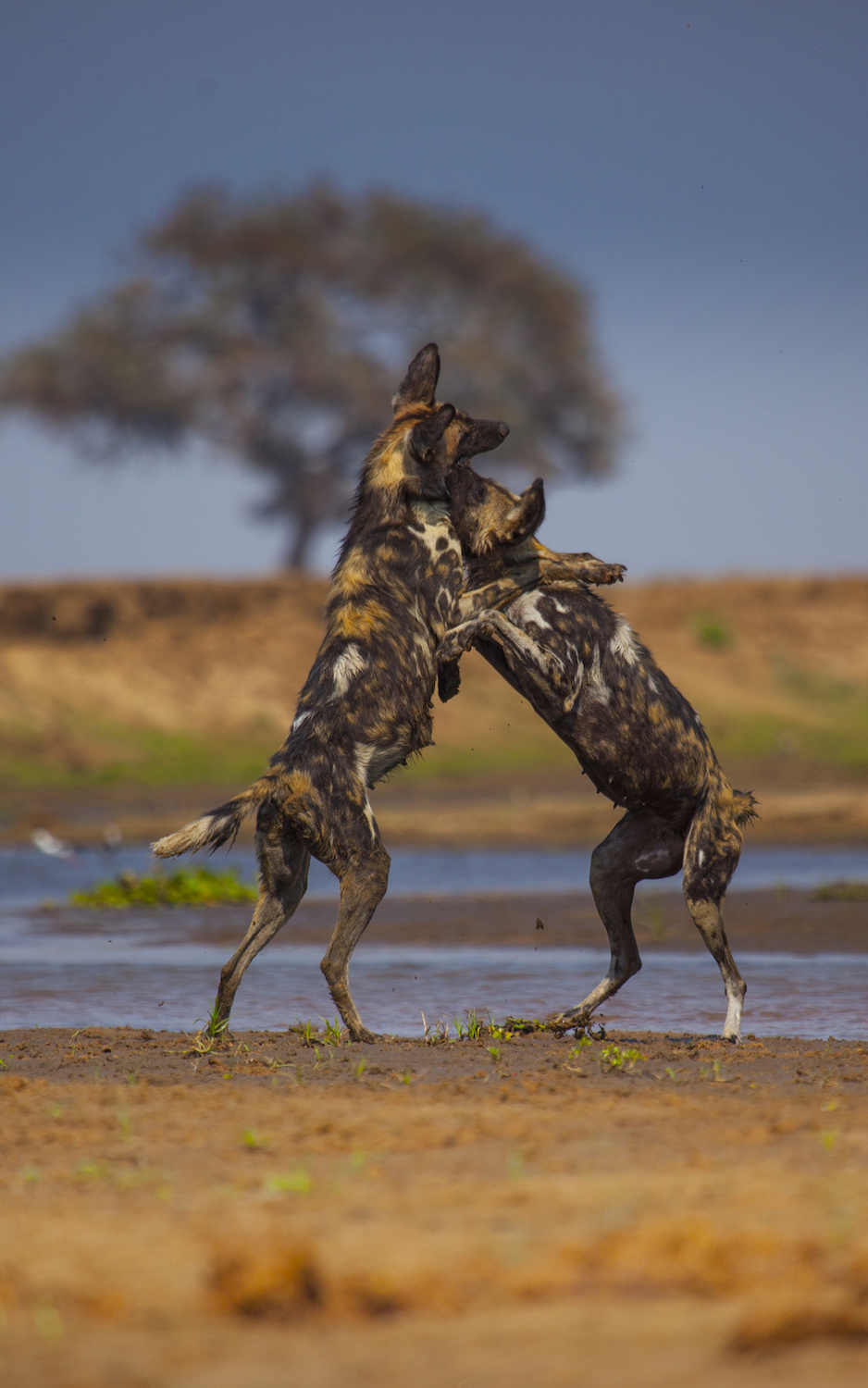
Tait play-fights with one of her relatives. Life in the African wilderness can be rough, but there's still time for wrestling. Playtime is an important pastime for this incredibly social species.
Sign up for the Live Science daily newsletter now
Get the world’s most fascinating discoveries delivered straight to your inbox.
Show me your teeth
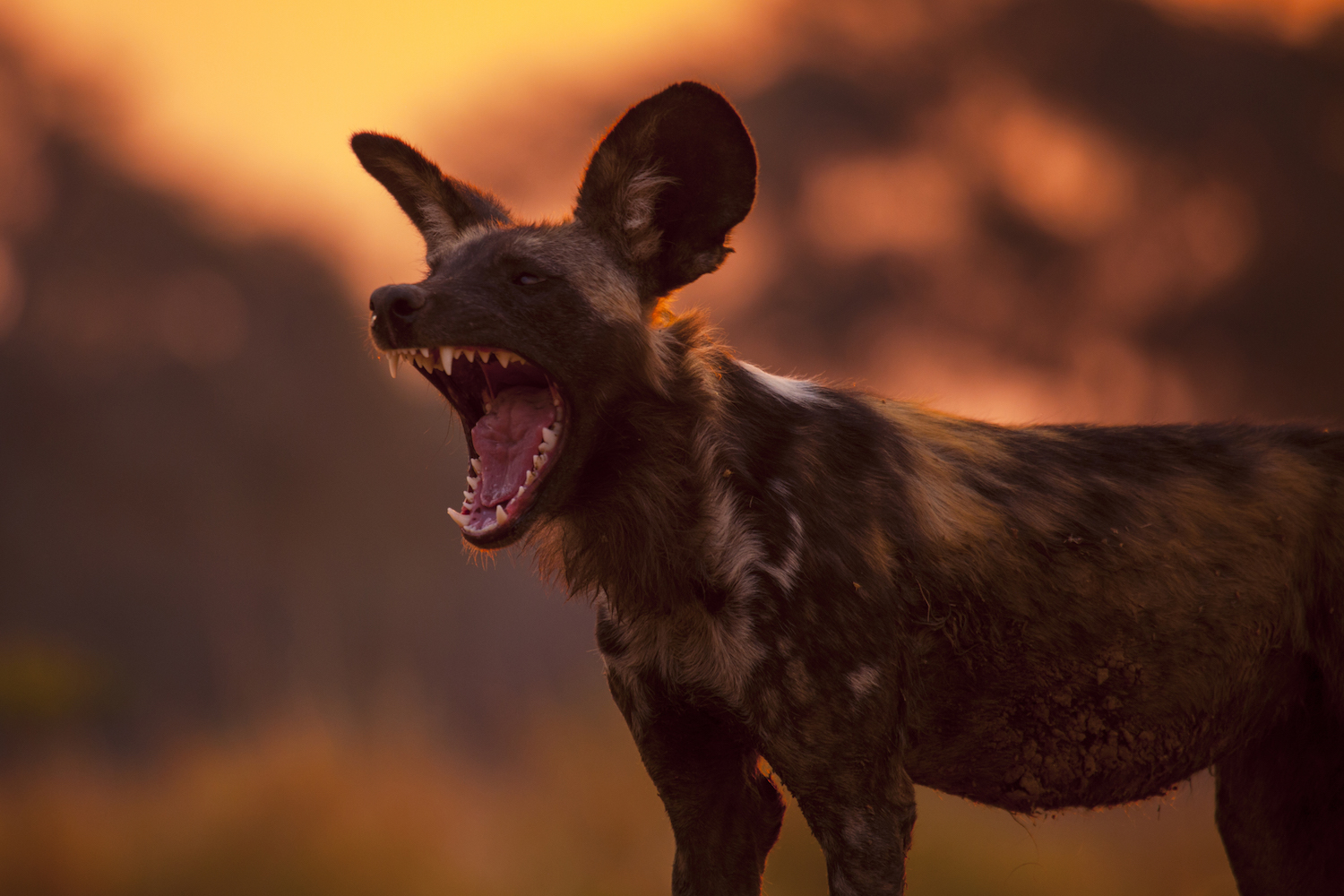
Tammy, Tait's daughter, shows off her teeth. Painted wolves are more closely related to wolves than domestic dogs. Like their many canine relatives, painted wolves come with an impressive set of sharp teeth.
Curious pup
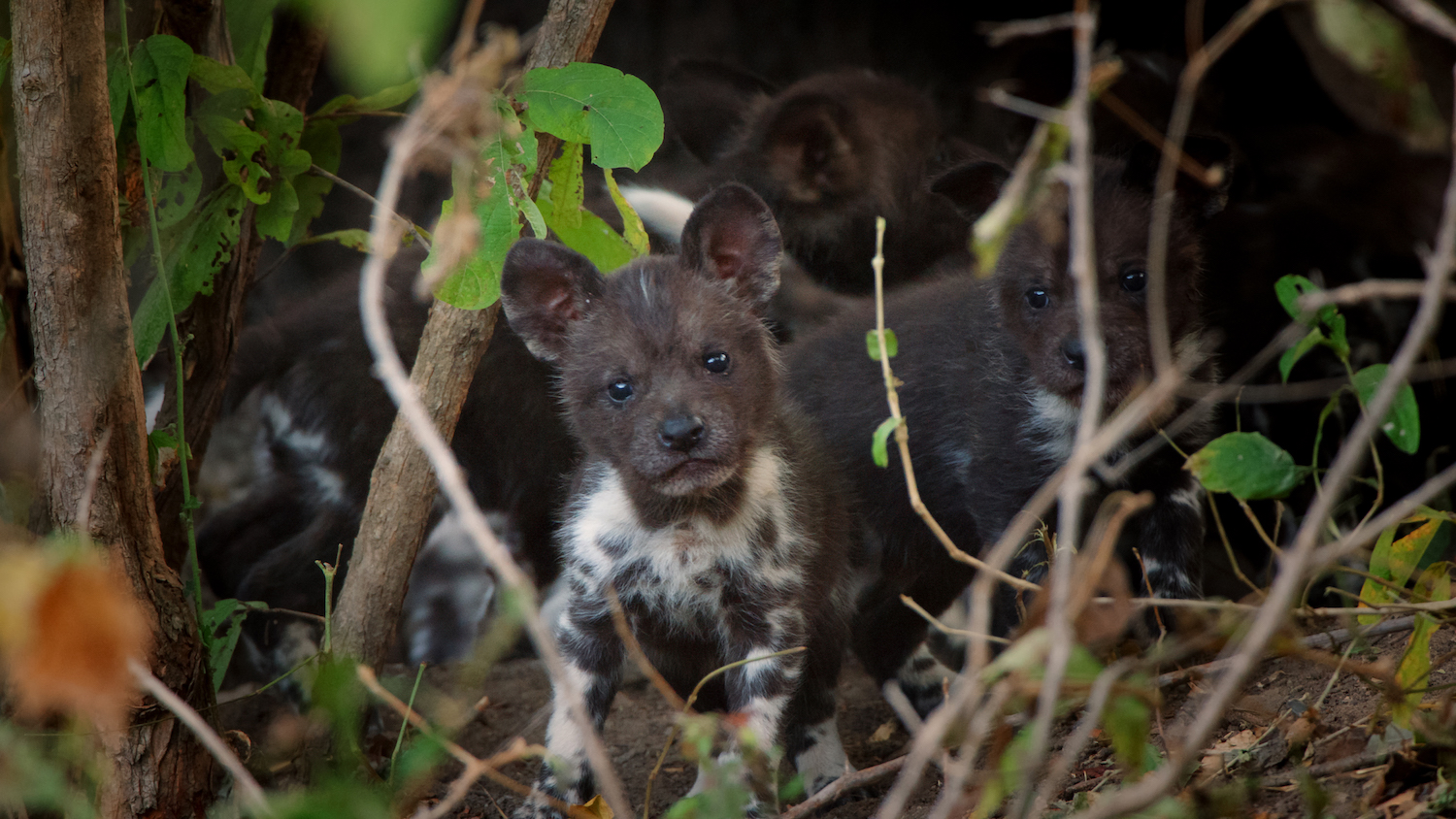
Painted wolf pups are born with mottled caramel, black and white coats that become more striking as they grow. Pups are weaned at around 5 weeks old, at which point they'll eat regurgitated food from their fellow adult pack members.
Returning with force
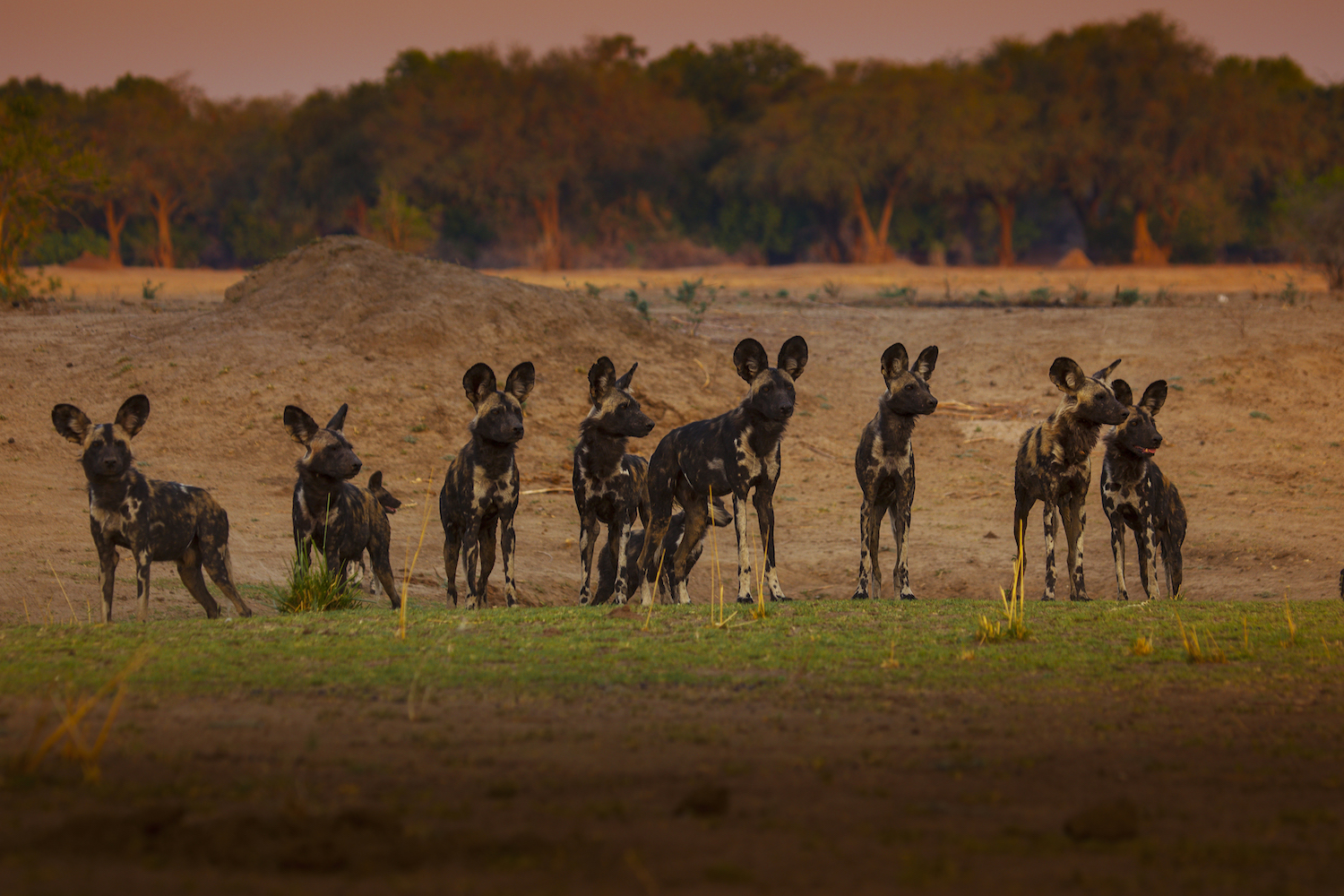
With a few new males, Tammy's pack is strong enough to win back her mother's old territory.
Leaders of the pack
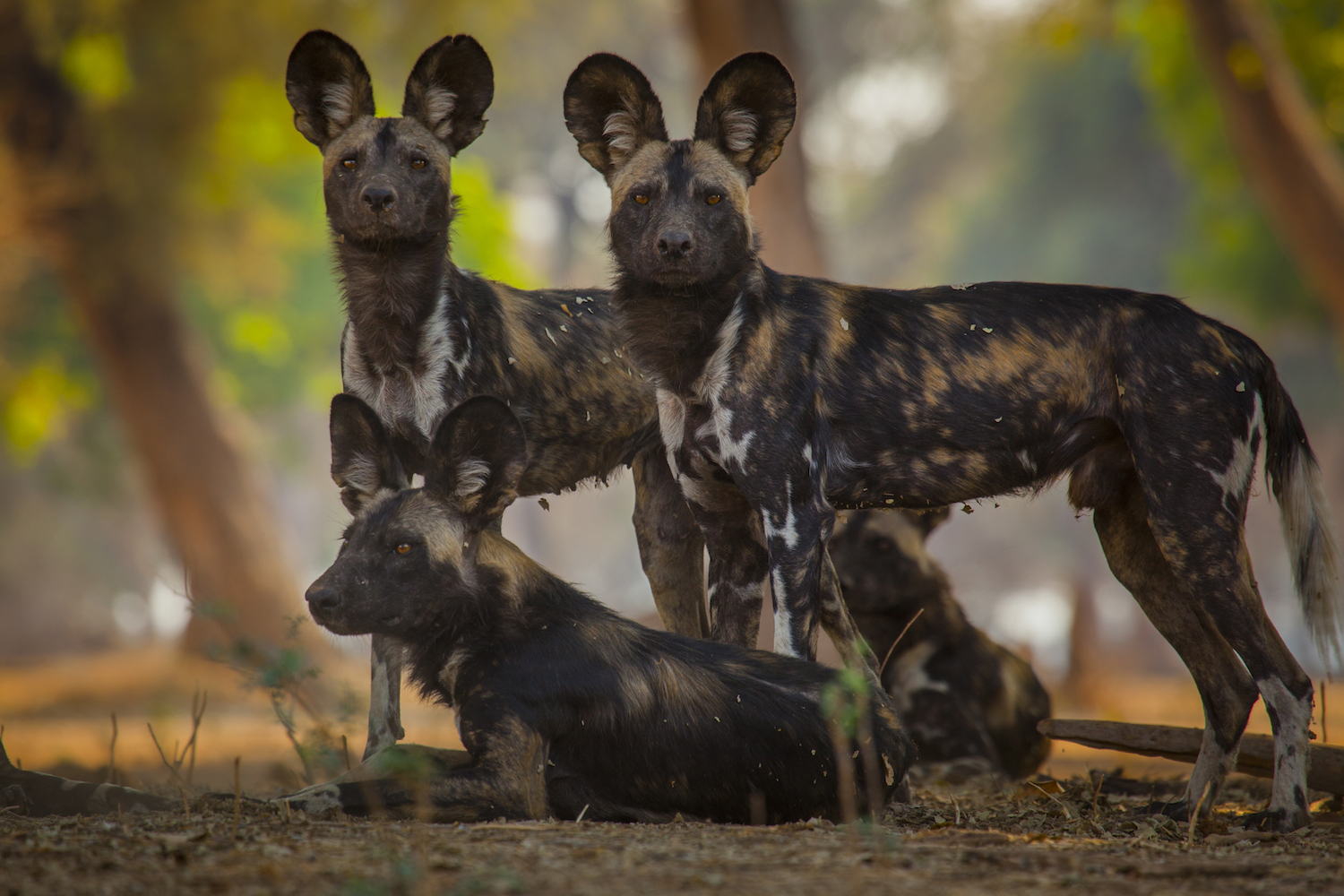
Tammy, the alpha female, stands next to Twiza, her alpha male. Painted wolves grow up to 30 inches (75 centimeters) tall at the shoulder and weigh up to 55 lbs. (25 kilograms).

Kimberly has a bachelor's degree in marine biology from Texas A&M University, a master's degree in biology from Southeastern Louisiana University and a graduate certificate in science communication from the University of California, Santa Cruz. She is a former reference editor for Live Science and Space.com. Her work has appeared in Inside Science, News from Science, the San Jose Mercury and others. Her favorite stories include those about animals and obscurities. A Texas native, Kim now lives in a California redwood forest.










